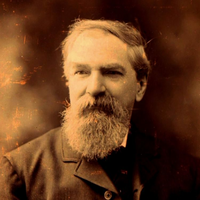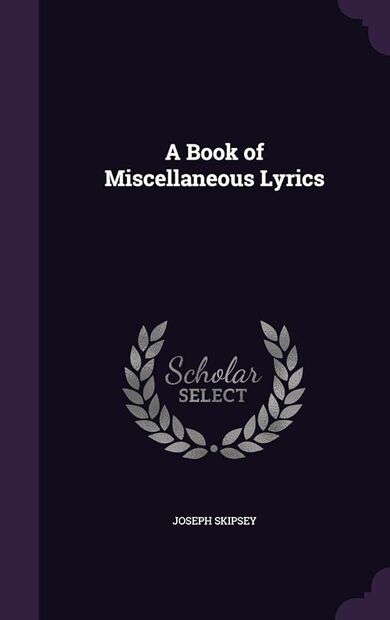The Angel Mother
I HAD a vision of the dear departed,
The while stone-dead to outer thing I lay;
And “Go,” she said—"and tell the broken-hearted,
What now my will shall to thy mind convey.
“I’ve passed the portals I so often dreaded,
And by the fiery trial unconsumed
I find myself to life, not death, yet wedded—
Even I whose relics you beheld entombed.
“To me the baubles of the world have vanished,
Even with the garments I behind have left;
But not one treasure from my heart is banished,
Not of one golden hope am I bereft.
“The self-same soul am I, the self-same being
In every human faculty the same,
Save with a clearer, keener sense of seeing
What path to glory leads, and what to shame.
“The wife’s devotion and affection tender,—
The mother’s sweet solicitude and all
That did our home a thing of beauty render,
Is mine, or haunts me still, and ever shall.
“Even from my sphere beyond your sphere located
I’m oft permitted to return—return!
To seek the halls my change left desolated,—
To bless the dear ones left that change to mourn.
“I see the brave man by the hearth-stone sitting,
To whom my being was and yet is wed,
I see the past before his vision flitting,—
I see the tear-drops for his lost one shed.
“Not void of hope the dust be saw enshrouded,
Itself was but a cerement to a soul,
Whose vision never could by death be clouded—
He yet hath sorrows he can not control.
“Full often o’er the welkin of his vision
I see an ebon cloudlet stealing, when
A sigh is uttered lest his hope, elysian,
Is but a phantom of the minds of men.
“Upon my knees, unseen, before him kneeling
I gaze into those eyes tear-blinded, till
A sense of sadness yieldeth to a feeling
As sweet as ever did a bosom thrill.
“I point the images of those yet living,
—Thus speak I still as I when with you spake—
When from the past into the present driven,
His heart is up and toiling for their sake.
“‘Even for my girl,’ he cries, ‘so bright and airy—
Even for my little boy just lisping, I
Must try this death-bell monotone to vary,
And on life’s harp awake life’s battle cry.’
“As he resolveth even so he doeth,
And all the little I can do, I do
To help him to the object he pursueth,
Or open vistas brighter to his view.
“I cannot wash as wont our jewels’ faces,—
I cannot comb as wont their golden hair;
But I can lock them in my fond embraces,
And I can gild their minds with fancies rare.
“I cannot fetch the lisper sweet his rattle,
Nor for the other the piano ring;
But I can aid my boy-child in his prattle,
And I can prompt my girl-child how to sing.
“I cannot lead them to the daisied meadows,
But I can over-look them when they’re there
And give a golden glow to passing shadows,
And make the fair sunshine to them more fair.
“I cannot give them supper in the even,
Nor on the morn to them their toast convey
But when they kneel before the Lord of heaven,
Them I can prompt for what and how to pray.
“Ay, tho’ they cannot see or hear me, ever
Into the soul of babe and father flows
The presence of their mourn’d one like a river,
That wakens music where-so-e’er it goes.
“So, as by those the idols of my bosom,—
Touch’d by the carol of the unseen bird;
Touch’d by the perfume of the unseen blossom,
The hearts of others to their depths are stirr’d.
“Nay, by each spirit sweet with whom my spirit
In state harmonic moved and breathed, I’m felt;
And still alive to every form of merit,
Still dwells my love with those with whom it dwelt.
“Alive to these—to each high aspiration—
To every base-born passion yet alive;
To all that tendeth to man’s elevation,—
To all that downward cloth the spirit drive.
“Alive to all most worthy to be cherish’d,
Alive to all should most excite our dread;
And being thus, albeit the body’s perish’d,
How can it be averr’d that I am dead?”


